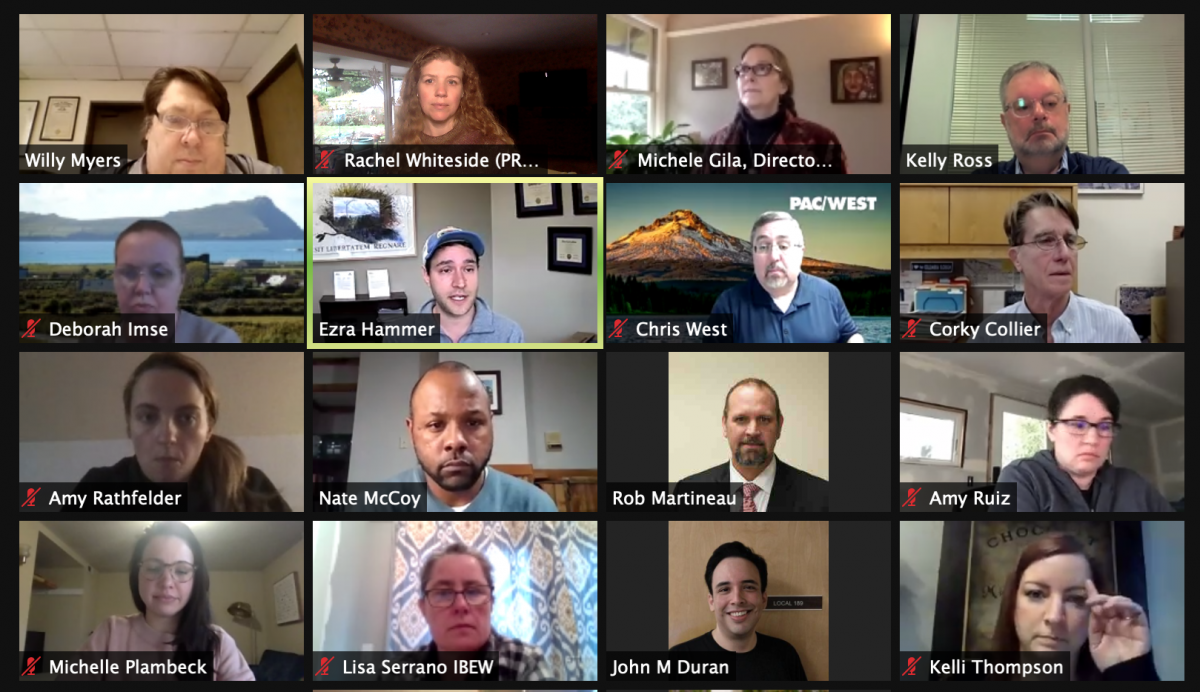Early this year, a remarkable coalition of Labor and Business converged around announced cuts at the City of Portland’s Bureau of Development Services (BDS).
With about ninety-eight (98) percent of BDS’s revenue coming from building permit fees, the Bureau took a huge hit during the COVID-19 pandemic when the mandated quarantine halted or delayed many construction projects. At one point, BDS was planning to layoff more than 60 workers, roughly three-quarters of which are represented by unions. Right after the news, a coalition of unions approached Bureau leadership and City Council members with ideas to avert layoffs. While union leaders were initially successful in delaying layoffs for represented workers, 13 non-represented employees were laid off on March 1.
Despite their healthy reserves that came as a result of conservative business practices following the Great Recession, BDS had been drawing down this fund at a rate of about $2.1 million a month since the start of the pandemic. Leadership announced an additional 40+ layoffs were on the horizon unless City Council could support the Bureau with limited one-time funds from the General Fund.
To help tell the story of the importance of BDS workers to housing and construction in the city, union leaders reached out to their contacts in the development and business communities. The coalition that originally started with just Labor, ballooned to include construction contractor associations, developers, realtors, minority contractor groups, and even the Portland Business Alliance. Above all, the coalition wanted to avoid what happened after the 2008 recession hit.
Faced with a similar drop in permit revenue in 2009, BDS radically downsized its workforce from 315 to just 147 staff by 2010. When construction demand returned, it took half a decade for BDS to replace those laid-off inspectors, planners and engineers. That created a years-long slowdown in processing permits, which delayed construction starts and resulted in thousands of construction workers in the Portland region being out of work longer than they needed to be. And projects that normally would have taken a year to get permits and approval were taking two or more years.
The reason BDS had a hard time recruiting is simple. Electrical inspectors are electricians; plumbing inspectors are plumbers; engineering plan reviewers are engineers. In each case, workers with those skills tend to earn more in the private sector than they do working for a public employer.
The work BDS does is important and necessary. Construction contractors may complain about fees, wait times, and complexity, but no one wants to be the city where buildings collapse on their occupants or burn because of improper electrical work.
“Significant BDS layoffs threaten to touch off a downward spiral, reducing service levels and increasing permitting timelines, both of which create uncertainty that can hamper recovery in the housing and office development and construction industries,” wrote eight prominent business groups in a letter to City Council.
The ad hoc coalition of BDS supporters, eventually growing to more than 15 organizations in all, made a convincing argument to City Council members to make BDS a priority now, in order to speed the eventual recovery later and not further delay much needed housing stock.
“The collaboration across the lines between union, management, and industry has shown that having a strong union presence in the City supports not only represented staff, but all employees and groups that could be affected by this downturn,” said PROTEC17 member and BDS employee Priscilla Partch. “It is a positive thing to see and one that I hope continues in the future.”
The funds needed to stabilize BDS through a two- to three-year recovery have been earmarked in the Mayor’s recommended budget and City Council is expected to adopt the final budget by mid-June.


